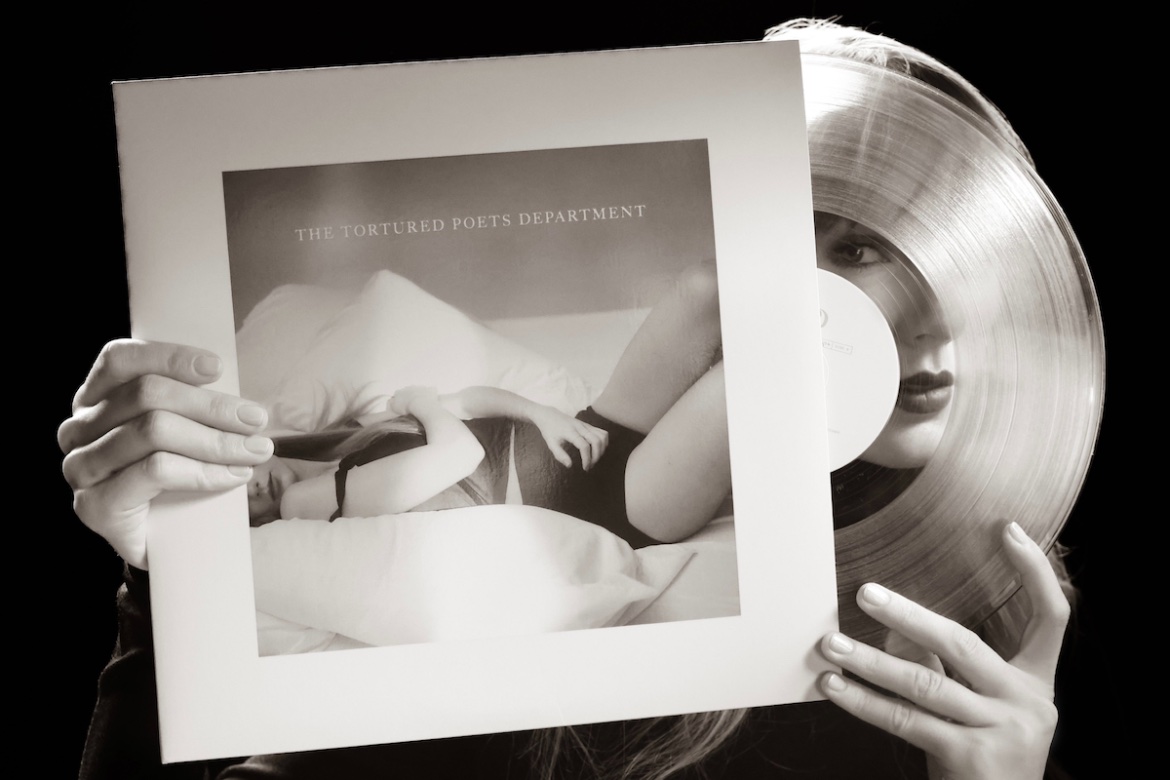The first Saturday night of my first year here at Oberlin, I found myself in someone’s dorm room in Barrows Hall, sitting on the floor and listening to a vinyl of Funeral by Arcade Fire on a record player that was surely pilfered from a parent. I was a first-year in 2020, so I didn’t get a proper in-person orientation, but this felt like an appropriate unofficial substitute.
Though baroque pop isn’t always my go-to genre, I love Florence + The Machine as much as any other witchy lesbian does. Ever since that night, I’ve enjoyed Funeral, as well as some of Arcade Fire’s subsequent work. Imagine if Florence Welch and Win Butler had children together, and those children inherited both of their best traits. Let me introduce you to The Last Dinner Party.
The band, which consists of Abigail Morris, Lizzie Mayland, Emily Roberts, Georgia Davies, and Aurora Nishevci, first caught my attention with their single “Nothing Matters.” The melody is absolutely infectious; I couldn’t stop listening to it. I didn’t get around to listening to most of their other singles before the album dropped, so most of Prelude to Ecstasy was fresh for me when I first hit play.
From the first and title track of the album, I was already intrigued. “Prelude to Ecstasy” is completely instrumental — which I think is a daring choice for any modern artist. It sets a very specific tone for an album and suggests that the album is truly meant to be listened to as a whole and in order. I believe the value of this has been lost on many modern music listeners. I’ve found that so many people only listen to individual tracks and never think to listen to them in the context of an entire project. I am not shouting from the top of the mountain; I have to remind myself very purposefully that artists release music in collections for a reason, and they deserve to have those collections taken seriously.
“Prelude to Ecstasy” is particularly noteworthy because it feels like a piece of classical music. The extent of my knowledge on this subject is admittedly limited, but that was my first thought when I listened to the song. This is an indie/pop band that wanted what might be a listener’s first impression of them to be that of classical music. This intrigues me to no end, and going forward in the album I made a note to pay special attention to the backing instrumentals.
I am certainly not disappointed with the instrumentals. I find that they very much affect how I hear each song, and subvert my expectations for them in the most wonderful way. However, what strikes me even more about Prelude to Ecstasy is its vocals and lyrics.
Morris, the lead vocalist of the band, is an incredible singer, to put it simply. Sometimes, she is belting, other times she is crooning, and others still she is soft and breathy. Her transitions between these singing styles are abrupt yet flawless. Because of this, every song feels unique and fresh.
In addition to the vocals, the lyrics define each song. In the first lines of the chorus of “Burn Alive,” Morris sing-shouts “I am not the girl I set out to be / let me make my grief a commodity.” There is a shocking awareness about the premise of much of current music, and the standard that the band is participating in — supposedly “baring one’s soul,” but also doing so for money. In “The Feminine Urge” there are the lines, “Here comes the feminine urge, I know it so well / to nurture the wounds my mother held.” Here, the band plays on a popular internet meme to make a commentary on generational trauma and the expectation of women to be caretakers.
The song that stands out to me the most is “Beautiful Boy.” The entire song is compelling, but the lines that particularly grip me are “And what I’m feeling isn’t lust, it’s envy / he has the Earth, makes love to her to spite me.” Here, the singer notes her lack of attraction to the male figure she is referencing in the song, establishing that she does not want him romantically. She discusses feeling like he has everything and can do whatever he wants, saying that “he has the Earth.” Then, the next line can be interpreted in a couple of different ways. On one hand, it could be taken that the “her” is a separate person and that the singer is jealous of the fact that he is able to be in a romantic relationship with “her,” one that she cannot be in presumably because of the fact that she is also a woman. On the other hand, the “her” could be referring to the Earth itself (or herself). In this view, he is making love to the Earth and relishing all of his powers and abilities under the patriarchy, just to spite the female singer. Both of these interpretations haunt me.
My only tiny, tiny critique of the album is that part of me feels like “Nothing Matters” should have been the last song, as opposed to “Mirror.” I don’t dislike “Mirror,” but “Nothing Matters” feels so appropriate. It encapsulates and consummates the entire album. The lyrics of “Mirror” were as great as all of the other songs on the album; however, the tune didn’t grab me. I am not suggesting that it should have been cut altogether, but I think “Nothing Matters” feels like it would be a more memorable conclusion.
However, that is the only negative thing I can possibly say about the album, and even that I do not say with much conviction. As a whole, this is by far my favorite release of 2024 so far, and is quite possibly going on my list of all-time favorites. Prelude to Ecstasy is a stellar piece of work, and The Last Dinner Party has a promising career ahead of them.







